I’m please to announce the publication of my new book Rethinking Social Studies: Critical Pedagogy in Pursuit of Dangerous Citizenship (Information Age Publishing, 2017).
The book is published as a volume in the series: Critical Constructions: Studies on Education and Society, which is edited: Curry Stephenson Malott, West Chester University of Pennsylvania. Brad J. Porfilio, CSU, East Bay. Marc Pruyn, Monash University. Derek R. Ford, DePauw University. Thanks to all the editors for their support of this project.
I would also like to thank Peter McLaren for writing the Foreword to the book. You can read of version of McLaren’s foreword to Rethinking Social Studies here: A Message to Social Studies Educators of the US in the Coming Trump Era.
Book Overview
Social studies is the most dangerous of all school subjects. Its danger, however, is a matter of perspective.
Like the schools in which it is taught, social studies is full of alluring contradictions. It harbors possibilities for inquiry and social criticism, liberation and emancipation. Social studies could be a site that enables young people to analyze and understand social issues in a holistic way – finding and tracing relations and interconnections both present and past in an effort to build meaningful understandings of a problem, its context and history; to envision a future where specific social problems are resolved; and take action to bring that vision in to existence. Social studies could be a place where students learn to speak for themselves in order to achieve, or at least strive toward an equal degree of participation and better future. Social studies could be like this, but it is not.
In practice social studies has been and continues to be profoundly conversing in nature. Social studies is the engine room of illusion factories whose primary aim is reproduction of the existing social order, where the ruling ideas exist to be memorized, regurgitated, internalized and lived by. If you don’t eat your meat, you can’t have any pudding! If you do not memorize these facts, accept these myths as truths so you can pass these exams to get those credentials, then you will not get any pudding. That is the way the world works. And good social studies teachers are here to make the meat palatable because they want everyone to be able to have some pudding.
Social studies too often teaches myths instead of encouraging critical explorations of human existence. Schools are fundamentally authoritarian, hierarchical institutions, they produce myriad oppressive and inequitable by-products and social studies is an integral component in this process.
The challenge, perhaps impossibility, is discovering ways in which schools in general and social studies in particular can contribute to positive liberty. That is a society where individuals have the power and resources to realize and fulfill their own potential, free from the obstacles of classism, racism, sexism and other inequalities encouraged by educational systems and the influence of the state and religious ideologies. A society where people have the agency and capacity to make their own free choices and act independently based on reason not authority, tradition, or dogma.
Does that sound too idealistic to you? Utopian even? I would not be surprised if it did. Many of my students (and more of my colleagues) say the same. They argue for the importance of being “realistic” or “adjusting to circumstances as they are” as if the really existing social studies classes in all their boring and socially reproductive glory are natural phenomenon beyond human capacity to change. I can understand this point of view, but cannot embrace it. You can just throw up your hands or argue for being realistic, but in the face of a world filled with injustices I do not believe sustaining the status quo is an admirable goal and neither is sustaining a social studies that offers conventional (non)explanations of the world.
In 1843, Arnold Ruge overcome with revolutionary despair, wrote a letter to Karl Marx lamenting the impossibility of revolution because the German people were too docile: “our nation has no future, so what is the point in our appealing to it?” To which Marx replied “You will hardly suggest that my opinion of the present is too exalted and if I do not despair about it, this is only because its desperate position fills me with hope.” This is an example of what philosopher Giorgio Agamben has called “the courage of hopelessness.” The courage of hopelessness is an optimistic response to pessimistic circumstances. The equivalent of responding to the criticism that you are “being too idealistic” with “be realistic, demand the impossible!”
The hegemonic system of global capitalism dominates not because people agree with it. It rules because most people are convinced “There Is No Alternative.” Indeed, as I argue in this book the dominant approach to schooling and curriculum, particularly in social studies education, is aimed at indoctrinating students into this belief.
Utopian thinking allows us to consider alternatives, such as the pedagogical imaginaries which this book explores, in attempt to open up spaces for rethinking our approaches to learning, teaching, and experiencing the world. These imaginaries are necessary because traditional tropes of social studies curriculum (e.g., democracy, voting, democratic citizenship) are essentially lies we tell ourselves and students (because democracy is incompatible with capitalism; capitalist democracy creates a shallow, spectator version of democracy at best; democracy as it operates now is inseparable from empire/perpetual war and vast social inequalities).
We certainly have plenty of fuel for our hopes. The challenge we face as social studies educators is to not warm our students’ hearts with empty hopes, but rather confront what are seemingly hopeless times for freedom and equality with a pedagogy and curriculum that come from a courage of hopelessness.
This book aims to rethink social studies so it becomes a site where students can develop personally meaningful understandings of the world and recognize they have agency to act on the world, to make change. Social studies should not be about showing life to students, but bringing them to life. The aim is not getting students to listen to entertaining lectures, but getting to speak for themselves, to understand people make their own history (even if they make it in already existing circumstances). These principles are the foundation for a new social studies, one that is not driven not by standardized curriculum or examinations, but by the perceived needs, interests, desires of our students, our communities of shared interest, and ourselves as educators.
*****
Rethinking Social Studies is organized into three parts. Part 1 – Redrawing the Lines, expands on the basic premises discussed above. Chapter 1 presents a description and critique of traditional social studies education. The chapter deconstructs the ideology of neutrality, which is frequently taught as part of social studies teacher education and examines the deleterious effects of conceiving of learning and citizenship as spectator projects. Chapter 2 presents a case study of right-wing think tank report on social studies as an example of the politics of the social studies and its connections to movement conservatism. By taking a close look at neo-conservative efforts to control the field and destroy the (at least theoretical) pluralism that has long characterized social studies we can better understand the normative nature of social studies and the inadequacy of adopting a neutral stance as social studies educators. Chapter 3, “Insurrectionist Pedagogies and the Pursuit of Dangerous Citizenship,” is in many ways the heart the book. This chapter presents an analysis of neoliberal education reforms in North America. Part of a Global Education Reform Movement (GERM), these corporate-driven reforms include three key strategies: (1) School choice and privatization; (2) human capital policies for teachers; and (3) standardized curriculum coupled with an increased use of standardized testing. The idea of “dangerous citizenship” is presented as a possible antidote to the stultifying effects of GERM on the freedom to think, learn, and teach social studies outside of a hegemonic worldview that is authoritarian and harbours racially, sexually, and class-based discriminatory traditions. Various possibilities for creative disruption of dominant assumptions and practices of social studies teaching and curriculum are presented as imaginaries for what might become insurgent pedagogies that foster dangerous citizenship.
The chapters in Part 2 – Social Education for Critical Knowledge for Everyday Life explore questions such as: What is the social justice? Chapter 4 takes a look at the relationship of social justice and power and argues that social justice requires much more that adopting a new vocabulary and socially and culturally inclusive curricula, rather it requires a revolution of everyday life.
Chapter 3 asks, What is critical pedagogy? Then takes a critical look at an approach that is filled with contradictions and too often comes across as either a theory-laden field for left wing academics or a radical idea that is domesticated by liberal teachers and teacher educators, or both. The chapter emphases the importance of everyday life and becoming as part of what it means to practice critical pedagogy.
Why is class an invisible concept in social studies? What would social studies look like if we put class at the center of the curriculum? Chapter 6, “Why Teaching Class Matters” describes both the invisibility of class in the social studies curriculum (and research) and presents an example of how class can be (and is) used as the organizing concept for a high school American Studies course. Chapter 7 analyzes the American empire – making connections between politics, foreign policy and the economy to illustrate the really existing class war in the United States (and the world) – as the context for the political and pedagogical project that is teaching and organizing for social change.
In an era marked by regimented curriculum, bureaucratic outcomes-based accountability systems, and corporatized educational aims, how do you keep your ideals and still teach? The answer to this question is multifaceted, but as argued in Chapter 8, there are at least two necessary, if insufficient responses. First, working in opposition to the mainstream of educational practice requires a question-posing approach. Secondly, collaborative thought and action are crucial to understanding and transformation of educational practices and social relations. Two counterstories are presented in this chapter. The first is based on the individual perspectives of two novice teachers. The second is the counterstory of a collective known as the Rouge Forum.
I often ask the social studies teachers to write about and examine the beliefs that inform their practice as educators. This task is useful in unearthing unstated assumptions that underlie our classroom practices and broader beliefs regarding the role of schools in society and reasons we teach what we teach. In Chapter 9, I have taken my own assignment and completed it, presenting a “my pedagogical creed” (based on the framework of John Dewey’s famously titled article). My hope is that you will be inspired to write your own pedagogical creed as a way analyzing and gaining insight into your practice as a social studies educator.
Part 3 – Beyond the Classroom, extends some themes from earlier in the book and provides an overview of key ideas found in Parts 1 and 2 (plus a few new ones). Democracy within the social studies curriculum is too often presented in its most weak and superficial form, that is, as process of electing of representatives and the functions of government. I say, “don’t vote, engage politics!” and Chapter 10 presents one approach to political engagement, writing for popular media. Chapter 11 is my own “educational autobiography,” another assignment I ask my students to complete, this activity aims to make sense of our current assumptions, thinking, and practices as educators by historicizing and analyzing their preconditions. The idea is that if we can better understand the sources of our present thinking and practice we can then better understand our present circumstances and more clearly envision how what we think and do today can help us achieve our goals in the future. The book closes with an interview conducted by Carlo Fanelli in which I discuss a wide-range of topics, including corporate education reform, critical pedagogy, and educational and politic activism. In many ways this interview is an overview and summary of ideas from the previous chapters.
*****
As researcher, teacher, book and journal editor I have had the privilege and honour to collaborate with many fine educators and scholars. When considering my work it is impossible to separate ideas and accomplishments that could be described as my own from those that are the result of collaboration with others. Mark Twain said,
“There is no such thing as a new idea. It is impossible. We simply take a lot of old ideas and put them into a sort of mental kaleidoscope. We give them a turn and they make new and curious combinations. We keep on turning and making new combinations indefinitely; but they are the same old pieces of coloured glass that have been in use through all the ages.”
Twain is right, but only up to a point. If we continue to manipulate that kaleidoscope at some point we will witness something entirely new, yet carrying forward aspects of what it was. We can understand and change the world and in the process we create ourselves anew. This is what I have experienced in my collaborative relationships with others and it is important for me to acknowledge those folks who contributed to who I am today as a person, a teacher, and a scholar.
This book emphases my collaborations with Kevin D. Vinson, Perry Marker, Rich Gibson, and Gregg Queen.
Kevin and I have had a long and fruitful collaboration as writing partners, but most importantly as friends. I came to now him when he submitted an manuscript to a journal I was editing and I like it so much I had to call him up and talk about it. That was, of course, back in the day when people actually called each other on the phone. Our interests and thinking has been so intertwined over the years that each of us has written pieces then given the other credit for writing. We allowed ourselves the conceit that our relationship was not unlike Lennon and McCartney, without the hits.
Perry and I met as graduate students when Ohio State University and Indiana University regularly held colloquia for social studies students and faculty, since then we have worked together on nearly twenty presentations, articles, and journal issues. Perry’s work as a social studies teacher educator and curriculum scholar is the exemplar of critical, democratic praxis and I have long admired his dedication to both the ideals of democracy and his students, but most of all I appreciate his friendship, particularly his willingness to engage with me in spirited discussions of politics and baseball, which are often fuelled by bourbon whiskey.
I was chairing the question and answer part of a conference session when this fellow wearing a black leather jacket stood up and asked a question that pulled the rug out from under the assumptions of all the prior presentations. Afterwards, I chased the guy down and found out his name was Rich Gibson and soon learned he was a full-time troublemaker and revolutionary. We began working together almost immediately, helping to found the Rouge Forum and writing articles for newspapers, political and academic journals, co-editing books and journals. He has been my mentor on Marx, martial arts, spaghetti westerns, revolution, and all things Detroit (and I reciprocate by sharing obscure blues, R & B, and rockabilly recordings with him).
Greg Queen is Rich’s former graduate student and in my mind he is one of the most unique and accomplished high school social studies teachers ever. He has provided leadership for social change in his community and nationally as the Community Coordinator for the Rouge Forum. His teaching embodies a critical, revolutionary spirit and he has been honoured for his dedication to teaching against the grain with the National Council for the Social Studies’ defence of academic freedom award. Greg does what most social studies teachers are afraid to do, objectively teach the unvarnished truth of United States history. When my students say nobody can teach that way and keep their job, Greg is the person I point to.
The influences of Kevin, Perry, Rich, and Greg are easy enough to spot in the pages of this book, but I must acknowledge a number of others who have influenced my thinking and practice as an educator. As a social studies educator I am deeply indebted to my professors, particularly Richard C. Phillips (University of North Carolina, Chapel Hill) and M. Eugene Gilliom (The Ohio State University) and my teachers at Independence High School in Charlotte, NC, the epitome, in a curricular sense, of the “shopping mall” high school.
I have learned much from many superb colleagues in the field of social studies education, including: Ceola Ross Baber, Jane Bernard-Powers, Jeffrey W. Cornett, Margaret Smith Crocco, Abraham DeLeon, Ronald W. Evans, Stephen C. Fleury, Four Arrows (aka Don T. Jacobs), Todd Hawley, Neil O. Houser, Gregg Jorgensen, Joseph Kahne, Gloria Ladson-Billings, Christopher R. Leahey, Merry Merryfield, Jack L. Nelson, Nel Noddings, Paul Orlowski, Valerie Ooka Pang, Marc Pruyn, Doug Selwyn, Özlem Sensoy, Walter Werner, Joel Westheimer, and Michael Whelan.
It has been a privilege to collaborate with many great scholars on a variety of projects including, Derek Ford, David Gabbard, David W. Hursh, Kathleen Kesson, Johnny Lupinacci, Curry Stephenson Malott, Gail McCutcheon, Stephen Petrina, Ken Saltman, Patrick Shannon, Larry Stedman, Ken Teitelbaum, John F. Welsh, and Mark Wolfmeyer.
All the people in, and around, The Rouge Forum have continued to be a huge inspiration to me as a scholar, teacher, and activist, most especially Brad Porfilio, Faith Agostinone Wilson, Gina Steins, Bryan Reinholdt, Joe Wegwert, Amber Goslee, Dennis Carlson, Peter McLaren, and Adam Renner (1970-2010).
Colin and Rachel continue to make me a proud father. And, as always, the person who provides my life with love, happiness, and excitement is Sandra Mathison.
Table of Contents
Foreword, Peter McLaren.
Acknowledgments.
Preface.
Permissions.
PART I: REDRAWING THE LINES
CHAPTER 1: Redrawing the Lines: The Case Against Traditional Social Studies Instruction.
CHAPTER 2: If Social Studies Is Wrong, I Don’t Want to Be Right (with Perry Marker). CHAPTER 3: Insurrectionist Pedagogies and the Pursuit of Dangerous Citizenship (with Kevin D. Vinson).
PART II: SOCIAL EDUCATION AND CRITICAL KNOWLEDGE FOR EVERYDAY LIFE
CHAPTER 4: Social Studies Requires a Revolution of Everyday Life.
CHAPTER 5: Broadening the Circle of Critical Pedagogy.
CHAPTER 6: Why Teaching Class Matters (with Gregg Queen).
CHAPTER 7: Education for Class Consciousness (with Rich Gibson).
CHAPTER 8: How Do I Keep My Ideals and Still Teach (with Rich Gibson, Greg Queen, and Kevin D. Vinson).
CHAPTER 9: Teaching for Change: Social Education and Critical Knowledge for Everyday Life.
PART III: BEYOND THE CLASSROOM
CHAPTER 10: Social Studies as Public Pedagogy: Engaging Social Issues in the Media. CHAPTER 11: A Sense of Where You Are.
CHAPTER 12: Critical Education and Insurgent Pedagogies: An Interview With E. Wayne Ross.
About the Author.


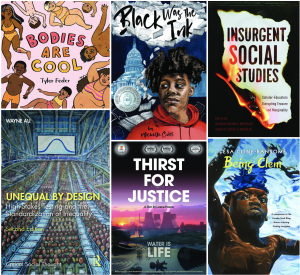
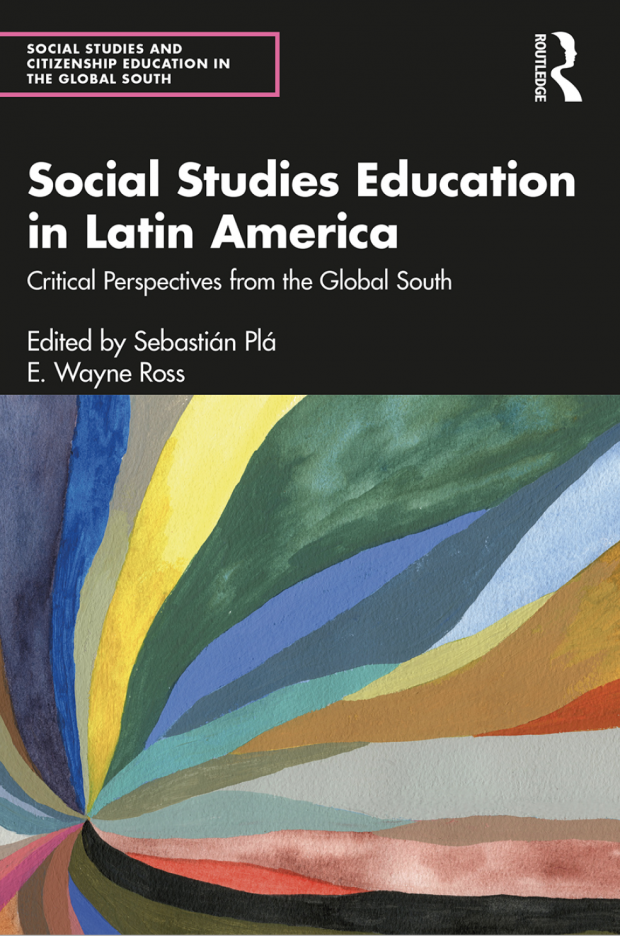
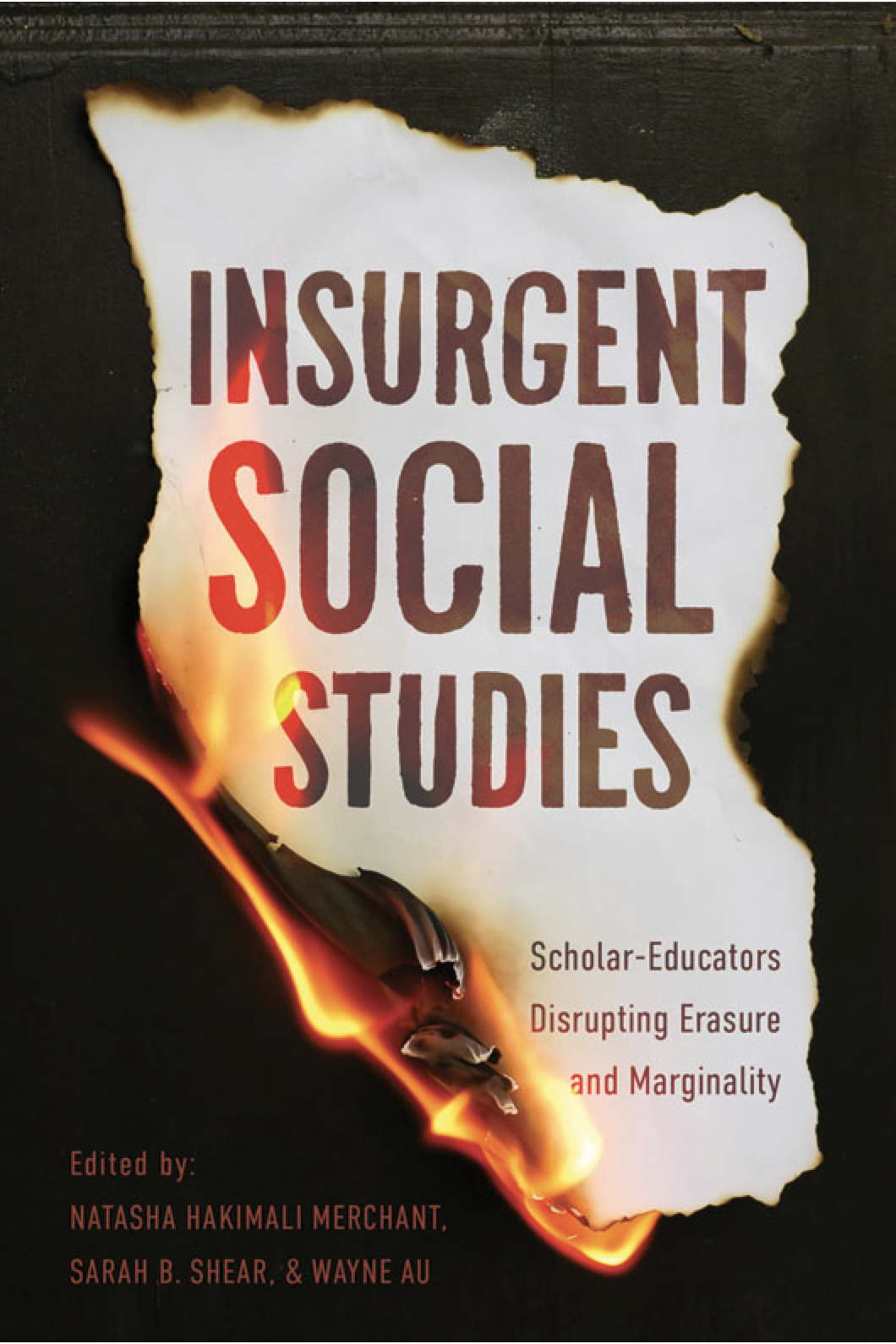
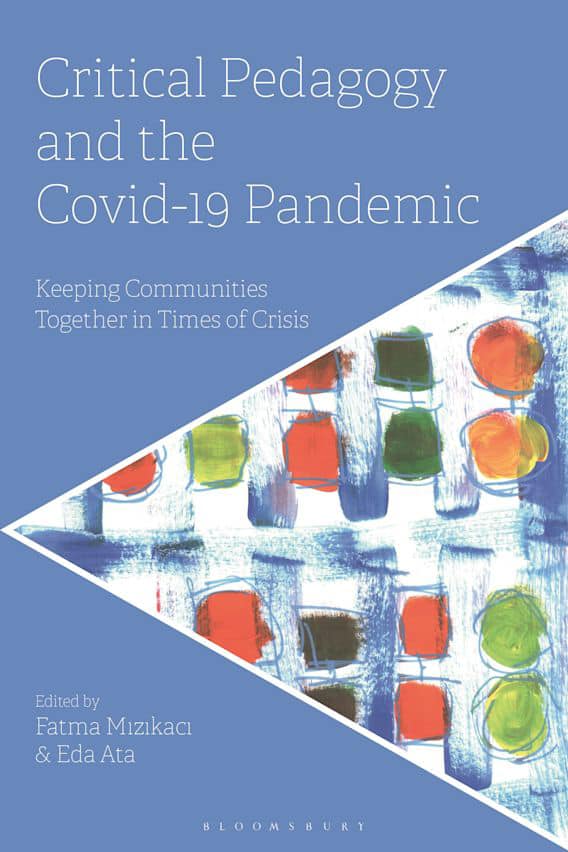 During the height of the COVID-19 pandemic, Fatma Mizikaci and Eda Ata (University of Anakara, Turkey) began a free online webinar series called Global Thursday Talks to examine the social and political impact of the pandemic on education, and explore how the creation of digital communities has become indispensable in maintaining connectivity and building networks.
During the height of the COVID-19 pandemic, Fatma Mizikaci and Eda Ata (University of Anakara, Turkey) began a free online webinar series called Global Thursday Talks to examine the social and political impact of the pandemic on education, and explore how the creation of digital communities has become indispensable in maintaining connectivity and building networks.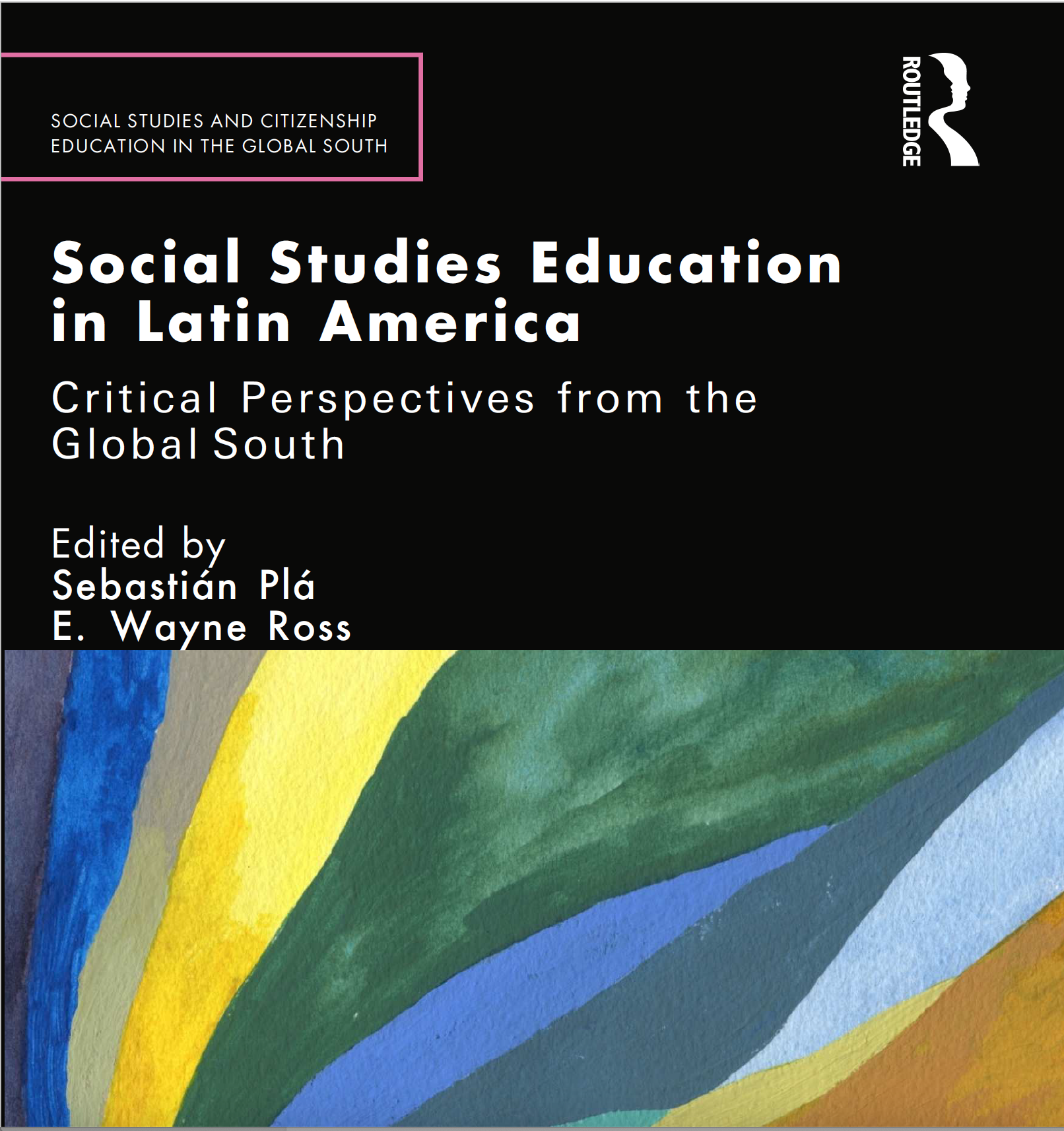 I’m pleased to provide a sneak peak of a new book coming out from Routledge later in 2022.
I’m pleased to provide a sneak peak of a new book coming out from Routledge later in 2022.
